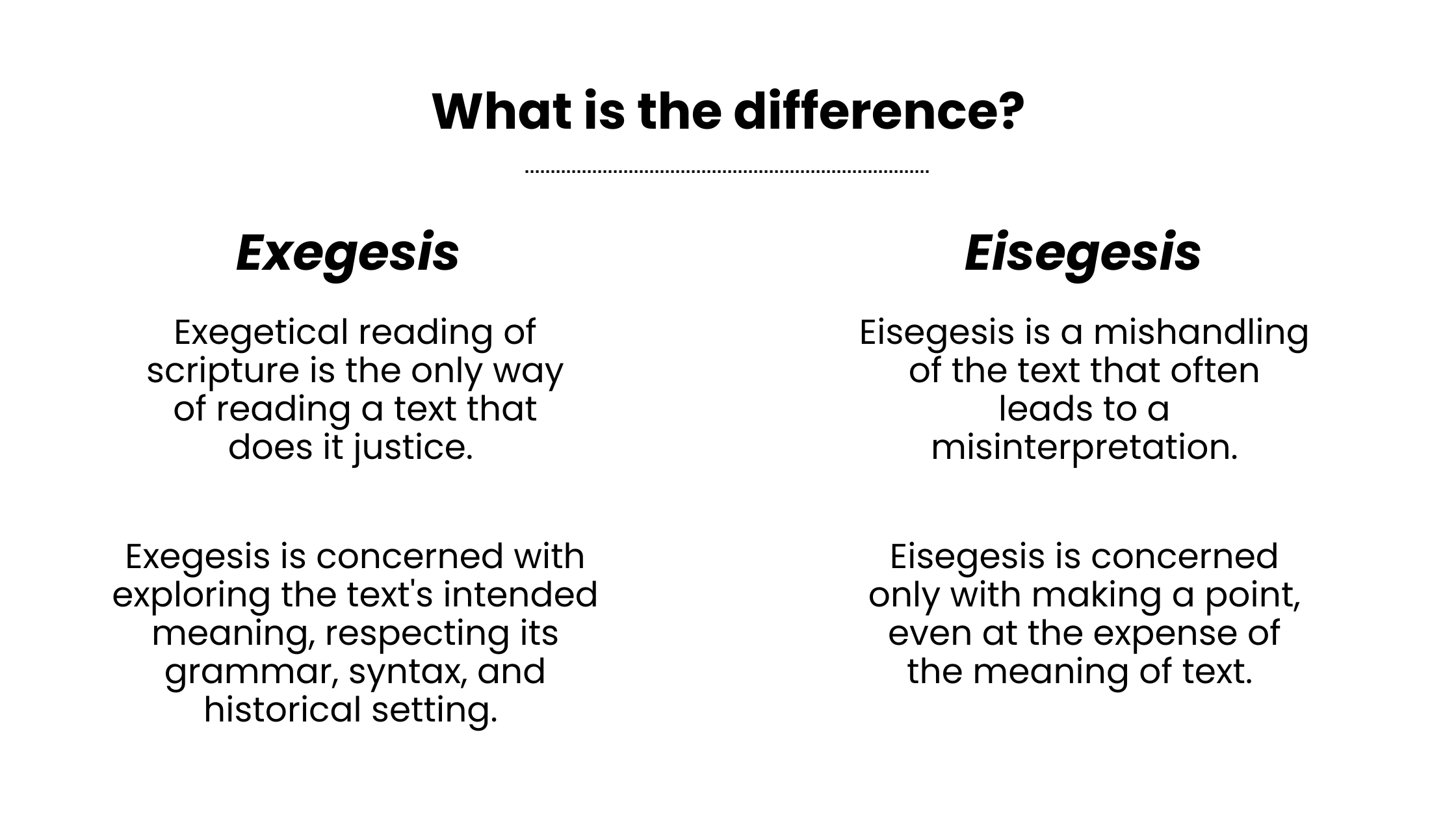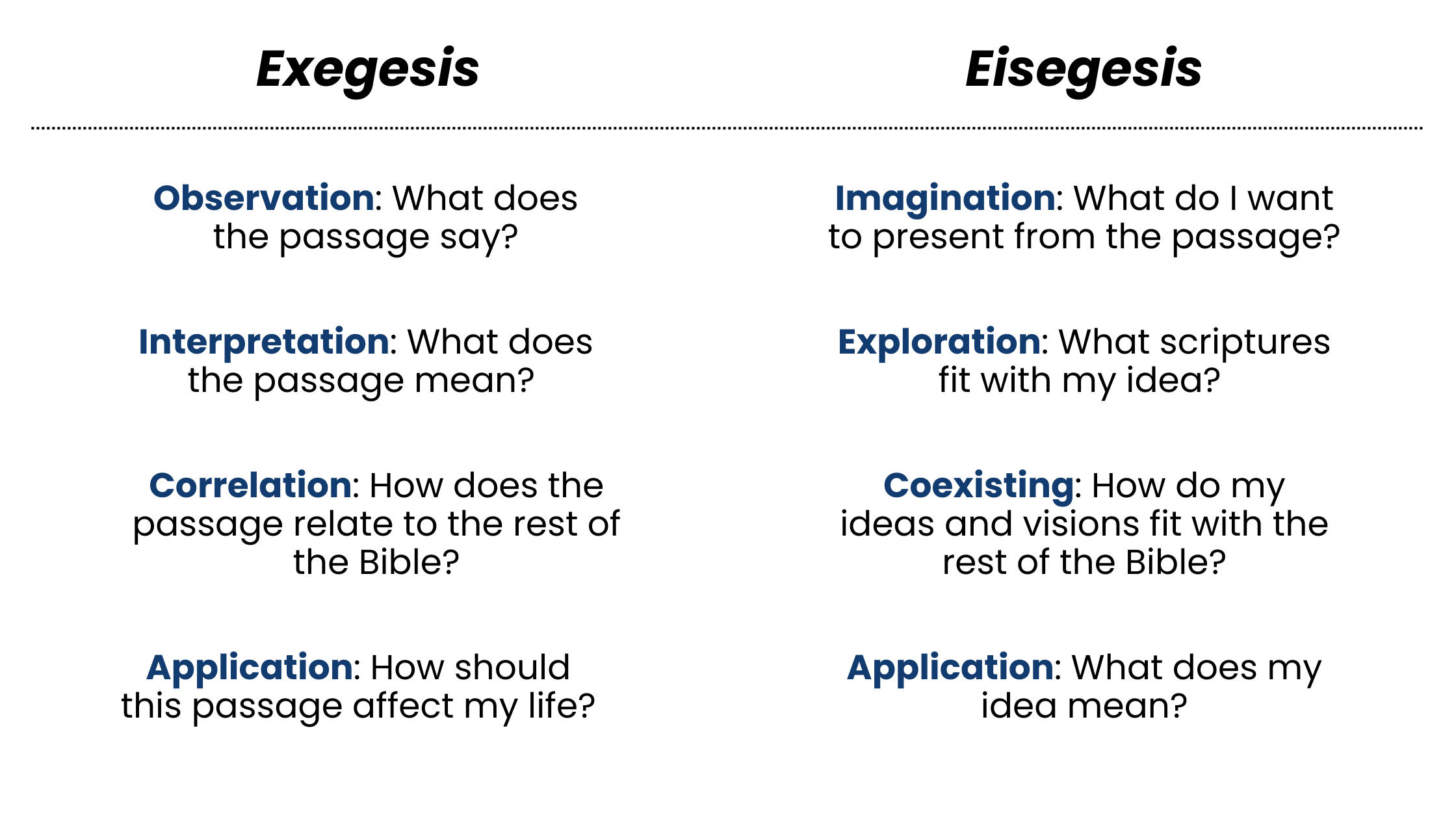The key to understanding any verse of Scripture is context. There is the immediate context – the verses immediately preceding and following it – as well as the broader context of Scripture – the overall context of the story.
Moreover, there is the historical and cultural context of how the verse was understood by its original audience. The context of a verse can greatly affect the meaning and application of a verse, which may seem straightforward when quoted in isolation but will mean something significantly different when understood in context.
Context involves several layers that need to be examined:
1. Immediate Context:
This refers to the verses immediately surrounding the one in question. The Bible is often divided into thought segments or paragraphs, and a verse can be part of a larger argument or narrative. By examining the preceding and following verses, we can better understand the flow of the narrative.
2. Broader Biblical Context:
This looks at how the verse fits into the whole Bible. The Bible is a compilation of various books written over centuries, each contributing to a grand narrative (i.e., God’s redemptive plan through the Gospel). Regardless of where a verse stems from be it in the law, the prophets, the gospel account or the epistles they all fall into one grand story centered around the person of Jesus Christ.
3. Historical and Cultural Context:
Each book of the Bible was written within a specific historical period, shaped by its unique cultural norms and practices. Understanding the historical events, social structures, and cultural expectations of the time helps us better grasp a verse’s meaning. For example, in the New Testament, knowing about Jewish customs surrounding purity laws sheds light on Jesus’ interactions with lepers and others considered “unclean” (Mark 1:40–45)
4. Theological Context:
This is concerned with the broader doctrinal truths of Christianity. In order to interpret a verse correctly, it needs to be interpreted in light of our fundamental beliefs about God, salvation, sin, grace and other core teachings of the faith.
5. Literary Context:
The Bible contains a variety of literary genres, including poetry, narrative, law, prophecy, wisdom literature, letters, and apocalyptic literature. Understanding the genre of a passage is essential because the interpretation of a verse is influenced by the type of literature it belongs to.
6. Canonical Context:
It refers to the position of a book within the canon of Scripture. It is important to understand that some books are foundational (such as Genesis) whereas others are complementary (such as the Epistles). A verse’s interpretive significance can be prioritized based on its Canonical context.
7. Linguistic Context:
The Bible was originally written in three languages: Hebrew, Aramaic, and Greek. Understanding these original languages can provide deeper insights, especially in cases where a word or phrase has multiple meanings or when the original text includes nuances like wordplays that are less obvious in translation. While translations faithfully convey the message of Scripture, exploring the linguistic context can enrich our understanding of the text.
Conclusion
As we can see, considering the verse in its context can reveal a different meaning than from what is apparent from in its isolation. If context is misunderstood, Scripture can be misapplied or misused, potentially leading to doctrines and beliefs that were not intended by its authors or God Himself. The context of the biblical text must therefore be carefully studied for proper interpretation.
What’s the right way to do it?
In the literal sense, exegesis means “to lead out of,” meaning that the interpreter arrives at his conclusions by simply following the text.
Allowing Scripture to speak for itself leads to far less error as we try and apply it to our lives.
In exegesis, the reader is able to extract what the writer intended to express, rather than making the Scriptures about what we want it to say and mean.
This method of interpretation involves making God’s word the ultimate and final authority and simply allowing the text itself to speak to us.
Proper exegesis helps us discover the text’s true meaning by respecting its grammar, syntax, and setting. More importantly, Scripture also commands the use proper interpretation;
2 Timothy 2:15 (NKJV)
Be diligent to present yourself approved to God, a worker who does not need to be ashamed, rightly dividing the word of truth.
Any honest student of the Bible must apply proper hermeneutics and allow for the text to speak for itself. Proper hermeneutics is essential because if we incorrectly interpret the Bible, our conclusions and beliefs about God and Christianity will also be wrong.


